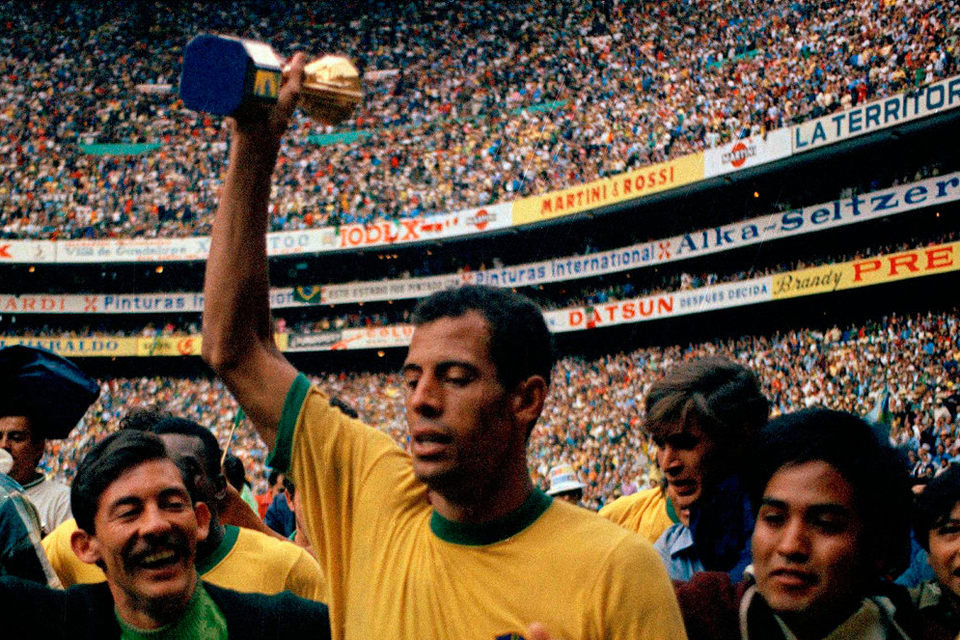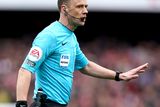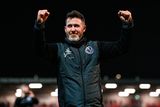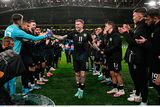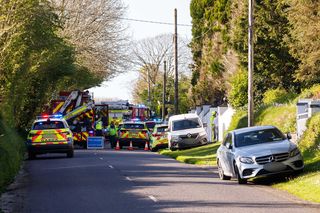Goal for the ages made him famous, and O Capitao Alberto was so happy to recall it
Carlos Alberto scored the goal that defined the 1970 World Cup final against Italy
Carlos Alberto, who passed away this week at 72, will always be remembered for finishing off that brilliant Brazil goal in the 1970 World Cup final. Photo: AP
For someone to refer to themselves as 'captain' three decades after they stopped playing football would, on the face of it, seem a little absurd. But what if you're the captain of perhaps the greatest football team of all time and, although only a right-back, can lay claim to scoring the most glorious goal in the history of the World Cup - a goal that has come to embody the apotheosis of team sport? If you were that man, surely you could call yourself whatever you damn well liked.
Carlos Alberto Torres, who died on Tuesday aged 72, was a born captain: authoritative yet charming and friendly, and an excellent communicator. He played in the shadow of his great friend Pele for both club and country almost his whole career, but there was never any debate over which of them was the captain.
"Everyone in Brazil knows me as O Capitao," said Carlos Alberto when I interviewed him in the Rio office of his sports marketing company three years ago. "It's just a nickname, but one that no one will ever let me forget it. Obviously I'm very proud of what we achieved in 1970, but so is everyone else in Brazil. It means more than football, it defined us to the rest of the world, and to be part of that is wonderful."
I was there ostensibly to ask him how he thought Brazil would do in the 2014 World Cup, which was just a few months away, but all I really wanted to talk about was his 1970 dream team of Pele, Gerson, Tostao, Rivellino, Jairzinho et al. He actually nailed my first question, correctly predicting that the 2014 team "doesn't have the experience to win the World Cup, and we only have one world-class player, Neymar, which is rare. Normally there are a handful of Brazilians among the world's best. And playing here in Brazil . . . well, God help them. The pressure will be unbearable."
His answer allowed me to segue swiftly into 1970, and I asked how that team, as tournament favourites, coped with the pressure. "In one word, preparation," Carlos Alberto said. "For four-and-a-half months, six or seven days a week."
Perceptions have changed in recent decades but from Brazil's first World Cup victory in 1958 until around the early 1990s, Europeans would glimpse Brazil's uniquely gifted footballers only every four years. In eulogising the joyful spontaneity of their football, a lazy stereotype was born, one that suggested such skills sprang directly from dancing the samba at Rio carnivals and playing barefoot on Copacabana beach. The 1970 team were the prime candidates for this theory.
"That's always been bullshit," said Carlos Alberto. "Yes, we are a football nation with a huge population, and we have a naturally beautiful way of playing, but don't think we don't take it deadly seriously. Like in US sport, winning is everything here, and we work hard at it.
"We had to change our manager just a few months before the tournament (when the increasingly erratic Joao Saldanha was replaced by Mario Zagallo), but the players trusted each other totally. We gelled so well - I think that's what made our play look effortless."
"And, of course, we had Pele. We were team-mates at Santos so I knew how important he was to winning. Playing with Pele felt like you had God on your side."
Carlos Alberto also knew how badly his friend wanted the 1970 World Cup after being booted out of the 1966 finals - quite literally - by brutal Portugal defenders. Brazil had been unprepared for the physicality of the European teams and relied on the old guard that had won the 1958 and 1962 crowns. Inexplicably, Carlos Alberto, already a star and captain of Santos, did not even make the squad.
"That's why in 1970, we didn't take any chances with preparation. Although Brazil is a poor country our sports medicine has always been excellent. Back then it was more thorough than the European teams. Every player arrived in Mexico at their absolute physical peak."
Brazil's first real test came in the second match, against England. Early on, Francis Lee put in a couple of heavy challenges on Everaldo and the Brazilian goalkeeper Felix, kicking the latter in the head.
"While the trainer was on, I said to Pele: 'One us needs to calm this guy down.' For all his skill, Pele could also look after himself on the field - he had to. But straight from the restart I'd come up against Lee and clatter him!" He raises an eyebrow and laughs: "I went in a bit too hard, actually - I should have got booked for the challenge."
It was a tense, classic encounter - "A game for adults," said Zagallo - remembered for Gordon Banks's miraculous save from Pele and Bobby Moore's sublime tackle on Jairzinho, with Brazil winning 1-0.
"England were the champions and an even better team than they were in 1966, so to beat them filled us with confidence," said Carlos Alberto. "It also meant we'd win the group and stay in Guadalajara for the quarter- and semi-final, and avoid altitude problems in Mexico City. We'd trained at altitude to acclimatise but staying that high is draining. Our medical team had it all planned out. After beating England I knew we could win it."
The team's crowning glory, of course, was his goal against Italy in the final, the fourth in a 4-1 win. He must have recounted it a thousand times but I could not leave without asking him about the goal. Would he mind retelling it one more time?
Mind? Within seconds he had turned his desk into the Azteca stadium. He put his mobile down on the right wing: "That's me, waiting around the halfway line, while Clodoaldo is on the left doing his magic little dribble," he said, waving towards my side of the table. He then leaned over and slid my tape recorder into the penalty area: "This is Pele . . ."
Sorry, but I'm going to say that again, because it's the nearest I'll come to true greatness: Carlos Alberto is giving me a masterclass on one of football's seminal moments and using my tape recorder as Pele.
"We'd worked on the move in training. Zagallo had said that if we dragged the Italians to the left, then I should get forward down the right. He would send his assistant to watch opposition matches and take photos with a telephoto lens." He pauses to laugh at the primitive nature of this spying mission.
"He'd come back and give us a slide show on his projector! But it worked. The Italians were obviously too good defensively not to track back, but we noticed that, probably because of the heat, they dropped off later in the game. This was the 85th minute and they were already beat, so I just took off."
By the time the flowing nine-man move had reached Pele (AKA my tape recorder) just outside the penalty area, Carlos Alberto was arriving to his right like a runaway train.
"Pele and me played so often together that he knew where I was - I didn't need to shout. He saw me coming and rolled his pass in front of me so I didn't have to break stride." He smiled again, savouring the memory once more. "And I caught it perfectly."
It still stands as the ultimate captain's goal. And it had been such an honour to listen to him talk about it that I had to stop myself saluting as I said goodbye.
Observer
